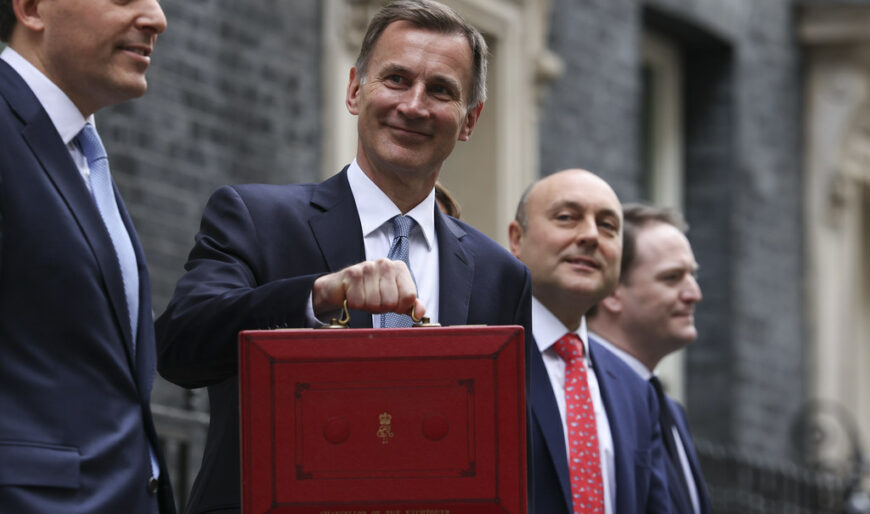Budget 2024: IER reacts to the Chancellor’s statement
Working families need more money in their pockets, but not at the expense of services that so many low-paid workers rely on

Jeremy Hunt, the Chancellor of the Exchequer, delivered his Spring Budget statement to the House of Commons this afternoon. In it, he emphasised making “efficiency savings” in public services and a further freeze on alcohol and fuel duty, but the headline was left until last – a 2% cut in National Insurance (NI).
From April NI will be cut from 10% to 8%, and self-employed NICS from 8% to 6%. The Chancellor claimed that, combined with the changes announced in the autumn statement, 27 million people will gain £900. And 2 million self-employed people will gain £650.
He said the Office for Budget Responsibility (OBR) estimated that this will put 200,000 more people in work – and increase GDP by 0.4%. The Chancellor added that the Conservatives will continue to keep cutting national insurance.
However, the cut in National Insurance comes at a time when public services are teetering on the edge, with a majority of local councils facing severe budget cuts, the NHS is overwhelmed and pay is continuing to flatline.
James Harrison, Acting Director of the Institute of Employment Rights, said:
“Today’s cut in National Insurance (NI) is a cynical attempt to divert attention away from the government’s strangulation of public services and workers’ rights. It is not what the economy needs.
Working families need more money in their pockets, but not at the expense of services that so many low-paid workers rely on, and the health service that is already chronically underfunded.
Cutting NI means more austerity and an even bigger squeeze on services when we should be asking those with the broadest shoulders to take on a fairer share of the tax burden.”
Since it’s inception at the end of a decade of Thatcherite anti-trade union legislation in 1989, the IER have argued that key to regeneration is an economy that puts working people at it’s heart, with robust employment rights and collective bargaining. Harrison continued:
“Instead of constricting public services and using the law to crush the rights of workers and their trade unions, what we need is a new deal for workers.
A level playing field on workers’ rights would stop bad employers undermining the good ones, and would provide a framework for empowering workers, putting more money in their pockets, and jumpstarting the economy for future generations.”







